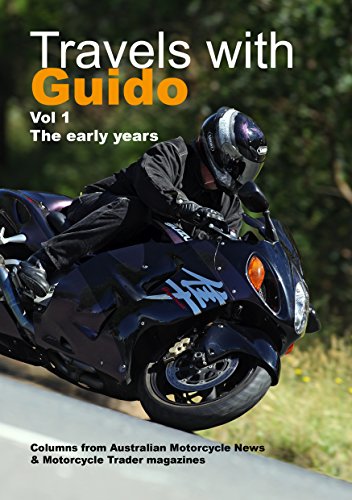Motorcycle Investor mag
Subscribe to our free email news

Near
miss
A recent rejection
reminded us of just how easy it is to end up costing
yourself a lot of time and money
(Travels with Guido series,
number 378, by Guy 'Guido' Allen, December
2024)
Yours Truly was in the
market for a motorcycle a little while ago and very
nearly pulled the trigger on what could have turned
out to be an expensive decision. The bike in question
was a Honda CBX1000C described by the seller as being
in excellent shape.
This is where descriptions are a vexed issue. Your
version of ‘excellent’ might be my version of ‘good’ –
or vice versa. Similarly, ‘good’ might actually mean
borderline okay in my world.
Certainly the machine in question was wearing its age
pretty well, with a factory exhaust system and
generally good presentation. There were a few scuff
marks which could be repaired, while some of the
chrome on the tappet cover looked like it might be
starting to lift. That would be much more difficult to
fix.
So far so good and then we looked a little deeper. The
fork seals were on the way out with one showing a bad
leak. While having plenty of tread, the tyres
were stamped for 2013 and so were timed out.
A check of the chain and sprockets revealed they were marginal and in reality had to be replaced. In my view, you don’t ride a big, fast and expensive bike (we’re talking over Au$20k, or USD$14k and GB£10k) with a dodgy driveline.
Oh, and it had a
sticking throttle...
Now here’s the big
issue: it was a private import that had never been
registered in Australia. The rules for overcoming this
hurdle vary enormously from state to state and I’ve
written a guide to it, which is
published by the good folk at bikesales.
In Victoria (where I live), you need to show up to the
rego office with a copy of the import approval, a VASS
engineer inspection approval plus a roadworthy
certificate. The last two now largely duplicate each
other, which makes no sense, but that’s what you have
to deal with. (Whoever oversees these rules at Vic
Roads needs to review their delusional grip on the
plot.)
This bike was running aftermarket brake lines, which I
know will not pass an engineering inspection if
they’re missing the appropriate DOT or SAE labelling.
That means replacing them with OEM gear, which you
could argue is a good thing on a classic motorcycle
when it comes to retaining long-term value. And while
you were on the job, you’d give the dodgy aftermarket
heated handgrips with the cut wires the flick and fit
a new set of originals.
In my head, the bills were mounting pretty quickly.
The numbers looked something like this:
Minor service $200
Tyres (fitted) $600
OEM brake lines (fitted) $900
OEM fork seals (fitted) $300
Chain and sprockets (fitted) $600
OEM handgrips (fitted) $100
RWC $250
VASS inspection $550
TOTAL Au$3500 (US$2200, GB£1750)
You could argue the individual numbers, but that’s
close enough. If anything the estimate is conservative
and could easily blow out. Experience tells me the
real cost will be more like Au$5000 (US$3100,
GB£2500).
Add in the fact that
getting a VASS and a roadworthy certificate
effectively means writing off two days for running
around, plus whatever time gets burned while you sort
out the mechanical issues.
Looking at that lot, muggins quickly turned away and
went hunting for something that was already registered
and came with a roadworthy. Really, I’d just like to
have a simple life – more time riding and less time
fixing things, thanks!
See
the CBX six that was in our shed
-------------------------------------------------
Produced by AllMoto abn 61 400 694 722
Privacy: we do not collect cookies or any other data.

Archives
Contact




